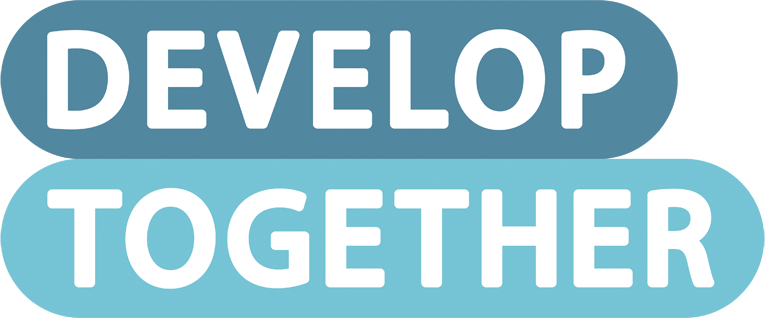[et_pb_section fb_built=”1″ _builder_version=”4.16″ _module_preset=”default” custom_padding=”0px||0px|||” global_colors_info=”{}”][et_pb_row _builder_version=”4.16″ _module_preset=”default” custom_padding=”0px||0px|||” global_colors_info=”{}”][et_pb_column type=”4_4″ _builder_version=”4.16″ _module_preset=”default” global_colors_info=”{}”][et_pb_image src=”https://developtogether.co.uk/wp-content/uploads/2021/07/arrows-1668914_1280.jpg” title_text=”arrows-1668914_1280″ _builder_version=”4.16″ _module_preset=”default” global_colors_info=”{}”][/et_pb_image][/et_pb_column][/et_pb_row][et_pb_row _builder_version=”4.16″ _module_preset=”default” global_colors_info=”{}”][et_pb_column type=”4_4″ _builder_version=”4.16″ _module_preset=”default” global_colors_info=”{}”][et_pb_text content_tablet=”
There is a common misconception that I’ve always battled with during my time as a coach. Clients feel comfortable with the professional relationship and the confidentiality it provides, so they start to unload their issues from the past as if it was a counselling session.
This confusion is easy to understand as the skills used in both practises are quite similar, with active and empathetic listening being two of the key areas that are shared.
I have completed a foundation course in counselling skills and have used these techniques effectively as a Mental Health First Aider while working in further education.
This experience taught me that I’m better suited to the more positive future looking aspect of Coaching, rather than Counselling which is more focussed on the past and addressing those issues.
So a great technique to maintain some level of motivation on a daily basis is to consider every day as if it were the first day in our plan to make a change.
If a client begins to show signs that require a professional counsellor then I will refer them to the appropriate service.
As a coach, I focus on taking clients from their stable current state to a positive future, building a took kit of strategies to continue this forward momentum more independently. This can be effective in as little as just 6 sessions for some clients with the right attitude.
So I’ve now explained the essential difference between coaching a counselling, and you’ll now be more aware of which method is most suited for certain situations and people.
” content_phone=”
There is a common misconception that I’ve always battled with during my time as a coach. Clients feel comfortable with the professional relationship and the confidentiality it provides, so they start to unload their issues from the past as if it was a counselling session.
This confusion is easy to understand as the skills used in both practises are quite similar, with active and empathetic listening being two of the key areas that are shared.
I have completed a foundation course in counselling skills and have used these techniques effectively as a Mental Health First Aider while working in further education.
This experience taught me that I’m better suited to the more positive future looking aspect of Coaching, rather than Counselling which is more focussed on the past and addressing those issues.
So a great technique to maintain some level of motivation on a daily basis is to consider every day as if it were the first day in our plan to make a change.
If a client begins to show signs that require a professional counsellor then I will refer them to the appropriate service.
As a coach, I focus on taking clients from their stable current state to a positive future, building a took kit of strategies to continue this forward momentum more independently. This can be effective in as little as just 6 sessions for some clients with the right attitude.
So I’ve now explained the essential difference between coaching a counselling, and you’ll now be more aware of which method is most suited for certain situations and people.
” content_last_edited=”on|phone” _builder_version=”4.16.0″ _module_preset=”default” hover_enabled=”0″ global_colors_info=”{}” sticky_enabled=”0″]
There is a common misconception that I’ve always battled with during my time as a coach. Clients feel comfortable with the professional relationship and the confidentiality it provides, so they start to unload their issues from the past as if it was a counselling session.
This confusion is easy to understand as the skills used in both practises are quite similar, with active and empathetic listening being two of the key areas that are shared.
I have completed a foundation course in counselling skills and have used these techniques effectively as a Mental Health First Aider while working in further education.
This experience taught me that I’m better suited to the more positive future looking aspect of Coaching, rather than Counselling which is more focussed on the past and addressing those issues.
So a great technique to maintain some level of motivation on a daily basis is to consider every day as if it were the first day in our plan to make a change.
If a client begins to show signs that require a professional counsellor then I will refer them to the appropriate service.
As a coach, I focus on taking clients from their stable current state to a positive future, building a took kit of strategies to continue this forward momentum more independently. This can be effective in as little as just 6 sessions for some clients with the right attitude.
So I’ve now explained the essential difference between coaching a counselling, and you’ll now be more aware of which method is most suited for certain situations and people.
[/et_pb_text][/et_pb_column][/et_pb_row][/et_pb_section]
